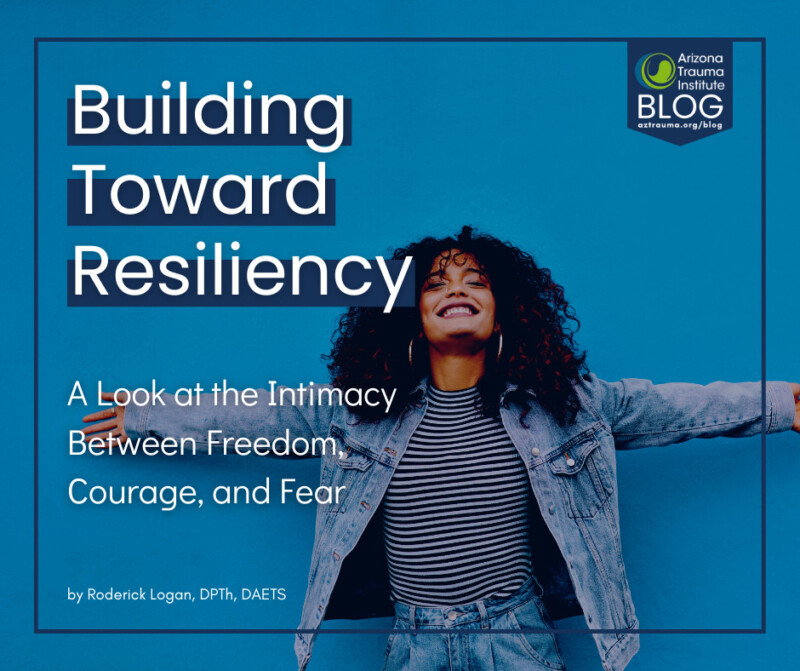A LOOK AT THE INTIMACY BETWEEN FREEDOM, COURAGE, AND FEAR
It takes courage to be free.
Courage is what allows us to break away from the patterns that our past has set for us, whether they are behavioral, emotional, or just simply the way we think. It is fear, or our inability or unwillingness to face our fears, that keeps us entrenched in those patterns. It might be fear of the unknown, fear of failure, or fear that someone will say, “I told you so.”
Freedom, courage, and fear are all intimately linked to one another. We know it takes courage to gain freedom and to keep it, and we understand that to find our courage we must face our fears. Facing fear does not mean the fear goes away, rather it means we use courage to inform our fears that they are not in charge.
There is a specific fear, however, that might need a little more attention.
It is the fear of starting over. One more time we have to be a freshman if we are to truly enjoy all that liberty affords.
Instead of avoiding this fear or trying to fight it, we can confront it by giving ourselves a few permissions. We will first need to relax our firm grip on most of what we have previously learned and what we have come to believe. That does not mean everything we know and believe is not true, it just means we will need to be less convinced that we are right, less dogmatic about our beliefs, and less dismissive of new information and new relationships.
We also will need to tell ourselves that it is safe to learn about ourselves from others. These new influencers may be younger or older than we are, they may hold slightly different values than we do, and they may have a completely different point of view than we have ever considered. Still, as we open ourselves up to trust them and be transparent with them, we might be amazed at what we discover about ourselves and our latent abilities. The point in learning from others who are not like us is not to become like them, but to stop fearing them. Embracing diversity does not mean we stop being our authentic selves. A fresh start includes not being afraid to be the one that is different.
Starting over is filled with emotional rapids, that at times are fun and exciting, and at other times loud and threatening.
The current into unknown territory will ignite a wide range of emotions and scary thoughts. Some will perceive that starting over means, “I am a failure.” Failing at something does not make one a failure. Everyone fails and when we experience failing, that is how we grow, improve, and become strong. Failure is not failing, but rather quitting, giving up, and refusing to start over.
For you and I to register for a renewed life as a frosh, means seeing ourselves less on where we have been, what has happened to us, and the wrong turn we have taken. Alternatively, it is more about the direction we are going, the person we are becoming, and the meaning we will achieve.
The fear of starting over is a fear that can keep us from finding the freedom we so desire, that we so deserve.
It takes intentional courage to be free, to stay the course towards freedom, and to continually inform our fears of who is the master of our plan. So, if you find yourself feeling stuck, remember that it is never too late to start over, or start over again. Know that each new beginning brings broader horizons, wider spaces, more opportunities, and greater resiliency.
One final thought. Sometimes the patterns that our past has set for us really do support us with balance, stability, and connectedness. We often call these patterns traditions, values, or principles. As we start over, we do not want to lose these. They are the anchors that have kept us alive and sustained us in dark times, and they are key supports for us as we learn to navigate the uncharted waters that we are now entering.

Written by Roderick Logan, DPTh, DAAETS
Dr. Roderick Logan, Senior Faculty Member and Director of Organizational Programs for Arizona Trauma Institute is a dedicated and transformative leader with extensive experience in steering multiple facets to reduce toxic stress, raise awareness about the impact of trauma, and facilitate resiliency development.



